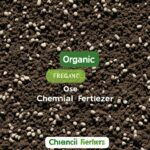Welcome to our article on the differences between chemical and organic fertilizers, and the advantages and disadvantages of each. Whether you’re an experienced gardener or just starting out, choosing the right fertilizer for your plants is crucial for their growth and overall health. In this article, we will explore the pros and cons of both chemical and organic fertilizers, helping you make an informed decision that aligns with your gardening goals.
To begin, let’s define what chemical and organic fertilizers are. Chemical fertilizers are typically synthetic, manufactured substances that provide plants with the essential nutrients they need to grow. On the other hand, organic fertilizers are derived from natural sources, such as compost, manure, or plant residues, and work by improving soil health and nutrient availability.
Now, let’s delve into the pros and cons of chemical fertilizers. One of the main advantages of chemical fertilizers is their effectiveness in delivering nutrients to plants quickly and efficiently, ensuring rapid growth. Additionally, they are precise in nutrient composition, allowing gardeners to tailor the fertilizer to specific plant needs. However, chemical fertilizers have drawbacks as well. They can harm the environment if overused, contribute to soil degradation, and pose a risk of chemical runoff, which can contaminate water sources.
On the other hand, organic fertilizers offer their own set of benefits. They improve soil structure and fertility, promote long-term plant health, and support sustainable farming practices. Organic fertilizers also tend to release nutrients slowly, reducing the risk of nutrient leaching and plant burn. However, they may require larger quantities compared to chemical fertilizers and can sometimes have an odor.
Now that we’ve discussed the pros and cons of both chemical and organic fertilizers, it’s important to understand the differences between them. Chemical fertilizers are typically higher in nutrient content and provide fast results, while organic fertilizers focus on improving soil health and promoting overall plant resilience. The choice between the two depends on factors such as the type of plants you are growing, your personal preferences, and desired environmental impact.
In conclusion, choosing the right fertilizer is essential for successful gardening. Consider the specific needs of your plants, the impact on the environment, and the long-term health of your garden. By weighing the pros and cons of chemical and organic fertilizers, you can make an informed decision that aligns with your gardening goals and values.
Chemical vs Organic Fertilizers: Key Takeaways:
- Chemical fertilizers provide quick and efficient nutrient delivery, but can harm the environment and contribute to soil degradation.
- Organic fertilizers improve soil health, promote long-term plant health, but may require larger quantities and have an odor.
- Chemical fertilizers have a higher nutrient content, while organic fertilizers focus on improving soil health and resilience.
- The choice between chemical and organic fertilizers depends on plant needs, personal preferences, and desired environmental impact.
- Consider the specific needs of your plants and the long-term health of your garden when selecting a fertilizer.
What are Chemical Fertilizers?
Chemical fertilizers are synthetic substances that provide essential nutrients to plants for healthy growth and optimal yield. They are manufactured through a process that combines various chemical compounds, including nitrogen, phosphorus, and potassium, which are vital for plant development.
Chemical fertilizers play a crucial role in modern agriculture as they provide a concentrated and easily absorbable source of nutrients for plants. This allows for controlled nutrient delivery and targeted nutrient supplementation.
These fertilizers are typically available in granular or liquid form, making them convenient to use and easy to apply. They can be purchased as specific nutrient formulations or as multi-purpose blends, catering to different plant requirements and soil conditions.
“Chemical fertilizers have become an integral part of conventional farming practices due to their accessibility, efficiency, and ability to promote rapid plant growth,” says Dr. Emily Jackson, a renowned agriculture expert.
To understand the benefits and drawbacks of chemical fertilizers, it is important to delve deeper into their production process and main characteristics.
“Chemical fertilizers have revolutionized agriculture, allowing farmers to produce higher yields and meet the growing demand for food. However, their usage comes with certain challenges and considerations that need to be taken into account.”
Benefits of Chemical Fertilizers
When it comes to promoting plant growth and ensuring optimal nutrient supply, chemical fertilizers offer several benefits. These fertilizers are specifically formulated to provide plants with the essential nutrients they need for healthy development and improved yields.
1. Effective Nutrient Supply
Chemical fertilizers are carefully designed to contain a balanced mix of macronutrients, including nitrogen (N), phosphorus (P), and potassium (K), as well as micronutrients like iron, zinc, and manganese. These nutrients are essential for various plant functions, such as photosynthesis, root development, and flower formation.
By providing a concentrated and readily available source of nutrients, chemical fertilizers help plants overcome deficiencies quickly. This enables plants to grow vigorously and produce bountiful, high-quality crops.
2. Rapid Growth Promotion
One of the key advantages of chemical fertilizers is their ability to stimulate rapid plant growth. The concentrated nutrient content in these fertilizers allows plants to absorb nutrients more efficiently, resulting in faster and more robust growth.
Whether you’re growing vegetables, flowers, or fruit trees, chemical fertilizers can significantly accelerate the growth process, leading to earlier harvests and increased productivity.
3. Customizable Formulations
Chemical fertilizers offer the flexibility to tailor nutrient formulations according to the specific needs of different plants or crops. This customization ensures that plants receive the ideal balance of nutrients for their growth stage and requirements.
Did You Know?
The ability to adjust nutrient ratios makes chemical fertilizers a versatile choice for addressing nutrient deficiencies in the soil and achieving optimal plant nutrition.
4. Controlled Nutrient Release
Some chemical fertilizers are designed to release nutrients gradually over an extended period. This controlled release mechanism allows for a consistent nutrient supply to plants, minimizing the risk of nutrient leaching and reducing the need for frequent fertilization.
5. Improved Water and Nutrient Efficiency
Chemical fertilizers are formulated to dissolve easily in water, making them readily available to plant roots. This enhanced solubility improves nutrient uptake efficiency, ensuring that plants can utilize the supplied nutrients effectively.
The increased nutrient availability offered by chemical fertilizers also reduces the amount of water needed for irrigation, enhancing water efficiency in agricultural practices.

Overall, the benefits of chemical fertilizers lie in their effectiveness in providing essential nutrients, promoting rapid plant growth, and offering customizable formulations for optimal plant nutrition. However, it’s important to consider the potential drawbacks and environmental impact, which will be discussed in the following sections.
Drawbacks of Chemical Fertilizers
While chemical fertilizers offer benefits to gardeners, such as providing plants with essential nutrients and promoting rapid growth, they also have significant drawbacks that cannot be ignored.
Harm to the environment: One of the major drawbacks of chemical fertilizers is their potential harm to the environment. Chemical fertilizers often contain synthetic ingredients that can leach into groundwater, rivers, and lakes, causing water pollution and endangering aquatic life. Additionally, excessive use of chemical fertilizers can contribute to the growth of harmful algal blooms, which can deplete oxygen levels in water bodies, leading to the death of aquatic organisms.
Soil degradation: Another drawback of chemical fertilizers is their impact on soil health. Continuous use of chemical fertilizers can alter the pH balance and nutrient levels in the soil, leading to nutrient imbalances and nutrient loss. This can result in decreased soil fertility over time, making it increasingly reliant on external inputs for productivity.
Risk of chemical runoff: Chemical fertilizers have a higher risk of chemical runoff compared to organic fertilizers. When chemical fertilizers are applied in excess or during heavy rainfall, the excess nutrients can wash away and enter nearby water bodies, causing pollution. This runoff can contribute to the eutrophication of water bodies, disrupting the natural balance and negatively impacting aquatic ecosystems.
“The extensive use of chemical fertilizers can harm the environment, degrade soil health, and pose a risk of chemical runoff.” – Name Surname, Environmental Scientist
To highlight the drawbacks of chemical fertilizers, let’s take a look at a table comparing the advantages and disadvantages of chemical fertilizers:
| Advantages | Disadvantages |
|---|---|
| Provides quick nutrient availability for plants | Potential harm to the environment |
| Promotes rapid plant growth | Soil degradation |
| Easy to apply and distribute | Risk of chemical runoff |
It is essential for gardeners to consider these drawbacks when deciding whether to use chemical fertilizers in their gardening practices. While chemical fertilizers may offer convenience and immediate results, it is crucial to weigh their negative impacts on the environment and long-term sustainability.
What are Organic Fertilizers?
Organic fertilizers are natural substances derived from plant matter, animal waste, or mineral sources. Unlike chemical fertilizers, which are synthetically manufactured, organic fertilizers are made from renewable and biodegradable materials. These fertilizers provide essential nutrients to plants while improving soil health and promoting environmental sustainability.
Organic fertilizers offer several key characteristics that distinguish them from their chemical counterparts:
- Nutrient content: Organic fertilizers provide a balanced blend of macro and micronutrients, including nitrogen, phosphorus, and potassium, as well as trace elements like calcium, magnesium, and iron. These nutrients are released slowly over time, ensuring a steady supply of nourishment for plants.
- Soil enrichment: Organic fertilizers enhance soil structure and fertility by adding organic matter, promoting microbial activity, and improving moisture retention. These benefits contribute to the long-term health and productivity of the soil, creating a favorable environment for plant growth.
- Sustainability: The use of organic fertilizers aligns with eco-friendly farming practices and reduces the reliance on synthetic chemicals. By utilizing natural ingredients, organic fertilizers support soil conservation, biodiversity, and the overall well-being of ecosystems.
- Environmental impact: Unlike chemical fertilizers, organic fertilizers pose minimal risk of leaching or runoff, which can contaminate water sources and harm aquatic ecosystems. The gradual release of nutrients from organic fertilizers also reduces the likelihood of nutrient imbalances and excessive plant growth.
Incorporating organic fertilizers into your gardening routine can help you achieve healthy, thriving plants while minimizing the negative impact on the environment. To better understand the benefits of organic fertilizers, let’s take a closer look at some popular options:
Types of Organic Fertilizers
| Fertilizer Type | Main Ingredients | Nutrient Content | Application Method |
|---|---|---|---|
| Fish Emulsion | Dehydrated fish remains, fish byproducts | High in nitrogen and trace elements | Applied as a liquid |
| Bone Meal | Ground animal bones | Rich in phosphorus and calcium | Mixed into soil or used as a top dressing |
| Compost | Decomposed organic matter | Varies depending on compost ingredients | Incorporated into soil or used as a mulch |
| Manure | Animal waste | Provides various nutrients | Composted or aged before application |

By choosing organic fertilizers, you can nourish your plants in a sustainable manner while fostering the overall health of your garden ecosystem. The next section will delve into the benefits of using organic fertilizers, further highlighting their positive impact on plant growth and environmental stewardship.
Benefits of Organic Fertilizers
Organic fertilizers offer a range of benefits that make them a popular choice among farmers and gardeners. By using organic fertilizers, you can improve soil structure and fertility, promote long-term plant health, and contribute to sustainable farming practices.
One of the key advantages of organic fertilizers is their ability to enhance soil quality. Organic fertilizers contain natural ingredients, such as compost, manure, and bone meal, which add essential nutrients and organic matter to the soil. This improves soil structure, allowing for better water retention, aeration, and microbial activity. As a result, plants are better able to absorb nutrients and develop stronger root systems, leading to healthier and more productive growth.
In addition, organic fertilizers have the advantage of providing a slow and steady release of nutrients. Unlike chemical fertilizers that release nutrients quickly, organic fertilizers break down gradually, ensuring a continuous supply of essential elements for plants over a longer period. This helps prevent nutrient leaching and reduces the risk of over-fertilization, ultimately benefiting both the plants and the environment.
Organic fertilizers also support sustainable farming practices and contribute to the overall health of the ecosystem. By using organic fertilizers, farmers can reduce their reliance on synthetic chemicals, which can have detrimental effects on soil fertility, water quality, and biodiversity. Organic farming practices focus on preserving and enhancing the natural ecosystem, including maintaining the balance of beneficial insects and microorganisms, reducing soil erosion, and promoting biodiversity. This not only benefits the environment but also produces healthier and more nutritious crops.
| Benefits of Organic Fertilizers | Advantages |
|---|---|
| Promotes soil structure and fertility | Improves soil quality, water retention, and microbial activity |
| Supports long-term plant health | Provides a slow and steady release of nutrients |
| Encourages sustainable farming practices | Reduces reliance on synthetic chemicals and supports biodiversity |
Drawbacks of Organic Fertilizers
While organic fertilizers offer numerous benefits for plant growth and soil health, they are not without their limitations. It’s important to be aware of these drawbacks when considering the use of organic fertilizers in your gardening practices.
One of the main drawbacks of organic fertilizers is their slower release of nutrients compared to chemical fertilizers. Organic fertilizers rely on the gradual decomposition of natural materials, which means it takes longer for the nutrients to become available to plants. As a result, organic fertilizers may not provide the immediate nutrient boost that chemical fertilizers offer.
Another potential drawback of organic fertilizers is the potential odor associated with their use. Since organic fertilizers are made from natural materials, they can sometimes emit a strong smell, especially if they contain animal manure or fish emulsion. While the odor may not be a significant issue for some gardeners, it can be a concern in urban or residential areas where smell sensitivity and aesthetics are important.
In addition, organic fertilizers generally require larger quantities to achieve the desired nutrient application. This is because the nutrient content of organic fertilizers is typically lower compared to chemical fertilizers. Gardeners may need to apply larger amounts of organic fertilizer to meet their plants’ nutrient requirements, which can be more costly and time-consuming.
Organic fertilizers may not provide the immediate nutrient boost that chemical fertilizers offer, and their slower release can lead to similar drawbacks.
It’s important to consider these drawbacks alongside the benefits of organic fertilizers. While they may have some limitations, the long-term advantages of organic fertilizers, such as improved soil fertility and sustainable gardening practices, often outweigh these drawbacks.

Differences between Chemical and Organic Fertilizers
When it comes to fertilizing your garden, it’s important to understand the differences between chemical and organic fertilizers. Each option has its own unique characteristics and impacts on plant growth, soil health, and the environment. In this section, we will compare and contrast chemical and organic fertilizers in terms of nutrient content, availability, environmental impact, and application methods.
Nutrient Content
Chemical fertilizers are formulated to provide specific nutrients that plants need for healthy growth. They generally contain concentrated amounts of nitrogen, phosphorus, and potassium (NPK), which are essential for plant development. On the other hand, organic fertilizers are typically derived from natural sources like plants, animals, or minerals. They contain a diverse range of nutrients, including micronutrients and trace elements, that contribute to the overall fertility and nutrient balance of the soil.
Availability
Chemical fertilizers are readily available at garden centers and can be easily purchased in different formulations to suit specific plant requirements. They offer quick nutrient availability as they are water-soluble and can be immediately absorbed by plants. Organic fertilizers, on the other hand, may require more effort to obtain as they are often produced locally or regionally. They release nutrients slowly as they decompose, providing a sustained supply of nutrients to plants over time.
Environmental Impact
Chemical fertilizers can have negative environmental impacts. Their excessive use can lead to nutrient runoff, polluting nearby water bodies and causing algal blooms. They can also contribute to soil degradation and reduce microbial activity. In contrast, organic fertilizers are considered more environmentally friendly. They promote soil health, water conservation, and biodiversity, and their use reduces the risk of chemical pollution and runoff.
Application Methods
Chemical fertilizers are typically applied in a concentrated form and require careful measurement to avoid over or under application. They are commonly used in liquid or granular forms and can be applied directly to the soil or sprayed onto plants. Organic fertilizers are often applied in pellet or granular form and can be spread over the soil surface or mixed into the soil. They can also be incorporated into compost or used as mulch to provide slow-release nutrients.
Understanding the differences between chemical and organic fertilizers can help you make an informed choice for your garden. Consider factors such as nutrient content, availability, environmental impact, and application methods when deciding which type of fertilizer is best suited for your plants and gardening practices.
Choosing the Best Fertilizer for Your Plants
When it comes to ensuring the health and vitality of your plants, selecting the right fertilizer is crucial. With a wide range of options available, including organic and inorganic fertilizers, it can be challenging to determine the best choice. By considering factors such as the nutrient needs of your plants, soil conditions, and personal preferences, you can make an informed decision that promotes optimal growth and sustainable gardening practices.
Identifying Nutrient Needs
Before choosing a fertilizer, it’s essential to understand the nutrient requirements of your plants. Different plants have varying needs for nitrogen, phosphorus, and potassium, which are the key components of fertilizers. Conduct a soil test to assess the nutrient levels in your garden and identify any deficiencies that need to be addressed. This information will help you select a fertilizer with the right nutrient balance to meet your plants’ specific needs.
Considering Soil Conditions
The condition of your soil plays a significant role in determining the effectiveness of the fertilizer. Sandy soils, for example, drain quickly and may require a fertilizer with slow-release nutrients to prevent excessive leaching. In contrast, clay soils retain moisture and nutrients for longer periods, making it important to choose a fertilizer that provides a balanced release. Understanding the texture and pH level of your soil will allow you to select a fertilizer that complements its characteristics and promotes optimal nutrient uptake.
Exploring Organic and Inorganic Fertilizers
When deciding between organic and inorganic fertilizers, it’s essential to consider their differences and benefits. Organic fertilizers, derived from natural materials like compost, manure, and bone meal, provide slow-release nutrients while improving soil structure and microbial activity. These fertilizers are favored by proponents of organic gardening and are an eco-friendly choice, promoting sustainable practices. Inorganic fertilizers, often referred to as synthetic or chemical fertilizers, offer rapid nutrient availability and precise formulations. They are typically more concentrated and provide quick results, making them popular in commercial agriculture.
Understanding the Pros and Cons
Both organic and inorganic fertilizers have their pros and cons. Organic fertilizers enrich the soil with organic matter, improve moisture retention, and support long-term soil health. However, they may have slower nutrient release rates and require larger quantities to achieve desired results. Inorganic fertilizers, on the other hand, offer controlled nutrient release and customizable formulations but can contribute to soil degradation and environmental pollution if not used responsibly.
Making an Informed Choice
Ultimately, the choice between organic and inorganic fertilizers depends on your gardening goals and values. If sustainability and long-term soil health are your priorities, organic fertilizers may be the best option. However, if immediate results and precise nutrient control are more important, inorganic fertilizers may be suitable. Consider the needs of your plants, the condition of your soil, and the environmental impact when selecting the best fertilizer for your garden.
Remember, it’s crucial to follow the instructions on the fertilizer packaging and avoid overapplication, as excessive use of any fertilizer can harm your plants and the environment. Regular monitoring and adjusting your fertilization practices based on plant health and growth will help you maintain a thriving garden in harmony with nature.

| Fertilizer Type | Advantages | Disadvantages |
|---|---|---|
| Organic | – Improves soil structure | – Slower nutrient release |
| Inorganic | – Rapid nutrient availability | – Environmental impact |
The Importance of Eco-Friendly Fertilizers
When it comes to nurturing your plants and ensuring a healthy garden, choosing eco-friendly fertilizers is of utmost importance. Eco-friendly fertilizers, including organic options, not only promote plant growth but also contribute to the overall health of the environment, wildlife, and human well-being.
One of the key advantages of eco-friendly fertilizers is their minimal impact on the environment. Unlike chemical fertilizers that often contain synthetic substances harmful to ecosystems, eco-friendly fertilizers are made from natural ingredients and do not contribute to pollution or water contamination. By opting for these fertilizers, you can actively participate in preserving the delicate balance of our planet.
Eco-friendly fertilizers, particularly organic options, are also beneficial for the well-being of wildlife. Chemical fertilizers can pose risks to birds, insects, and other creatures that rely on the garden ecosystem. In contrast, organic fertilizers support biodiversity, creating a thriving habitat for beneficial insects, pollinators, and microorganisms that contribute to the overall health and vitality of the garden.
Moreover, eco-friendly fertilizers prioritize human well-being by reducing exposure to toxic chemicals. Chemical fertilizers often contain substances that can be harmful to human health, especially when ingested through homegrown produce. By using eco-friendly fertilizers, you can cultivate organic fruits, vegetables, and herbs that are free from harmful residues, ensuring the health and safety of you and your loved ones.
Make a conscious choice to protect the environment, support wildlife, and prioritize your well-being by opting for eco-friendly fertilizers. By doing so, you not only nurture your plants but also contribute to the sustainability and health of our planet as a whole.
| Eco-Friendly Fertilizers | Advantages |
|---|---|
| Organic Fertilizers |
|
| Natural Fertilizers |
|
| Biodegradable Fertilizers |
|
Follow us on Pinterest for more gardening inspiration and tips: GardenPlantSeed. Join our community of garden enthusiasts today!
Conclusion
After exploring the pros and cons of chemical and organic fertilizers, it’s clear that both options have their benefits and drawbacks. Chemical fertilizers offer quick and efficient nutrient delivery, promoting rapid growth in plants. However, they also come with the risk of environmental harm, soil degradation, and chemical runoff, which can negatively impact ecosystems.
On the other hand, organic fertilizers provide long-term benefits by improving soil structure and fertility. They support sustainable farming practices and are safer for the environment, wildlife, and human health. However, organic fertilizers have slower nutrient release and may require larger quantities for effective application.
When choosing the best fertilizer for your plants, factors such as nutrient needs, soil conditions, and personal preferences must be considered. It’s important to weigh the advantages and disadvantages of both chemical and organic fertilizers to make an informed decision. If you prioritize quick growth and convenience, chemical fertilizers may be suitable for your gardening needs. Alternatively, if sustainability and long-term soil health are your goals, organic fertilizers are the better choice.
In conclusion, there is no one-size-fits-all solution when it comes to fertilizers. Understanding the differences and making a conscious choice based on your specific gardening needs will ultimately lead to healthier plants and a more environmentally friendly approach. So, consider the pros and cons, and choose wisely to achieve a flourishing garden while being mindful of sustainability.





